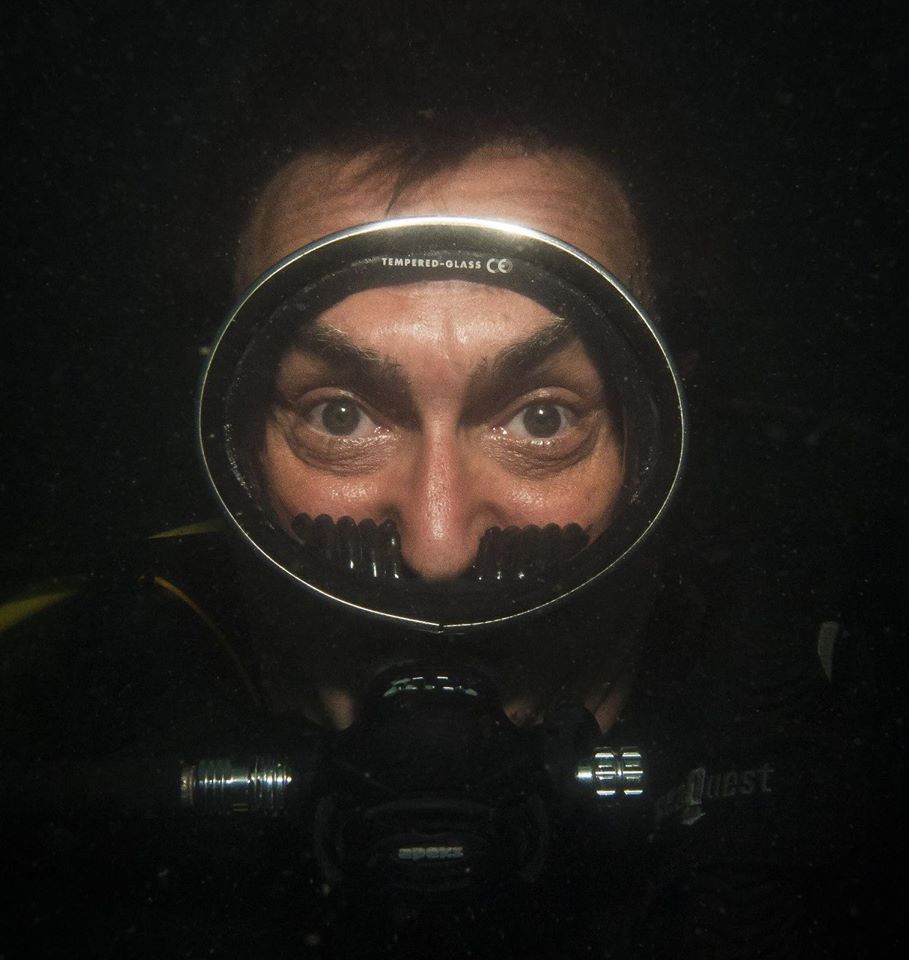
Stefan who has a history in Fine Art is originally from london. He first came in 2001 and has been living on Koh Phangan permanently since 2003. He has been living in chaloklum for the whole time with his wife Lotta.
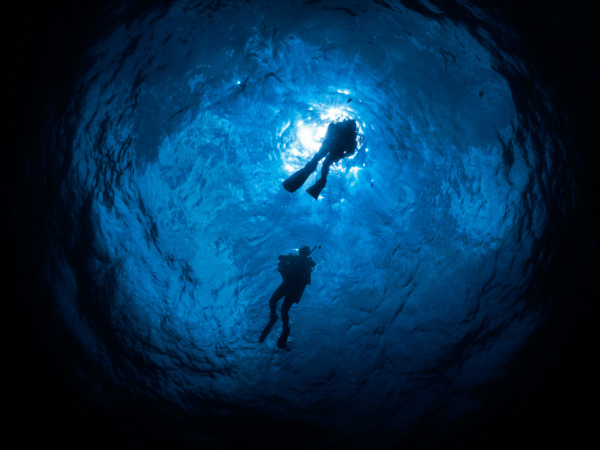
“I worked as a diving instructor on the island for twenty years, and then I worked freelance. I now volunteer for the Centre for Oceanic Research and Education, South East Asia (core sea). My role there is the head of education, in reality I am teaching the next generation of scientists to dive, to be research and tropical conservation divers”.
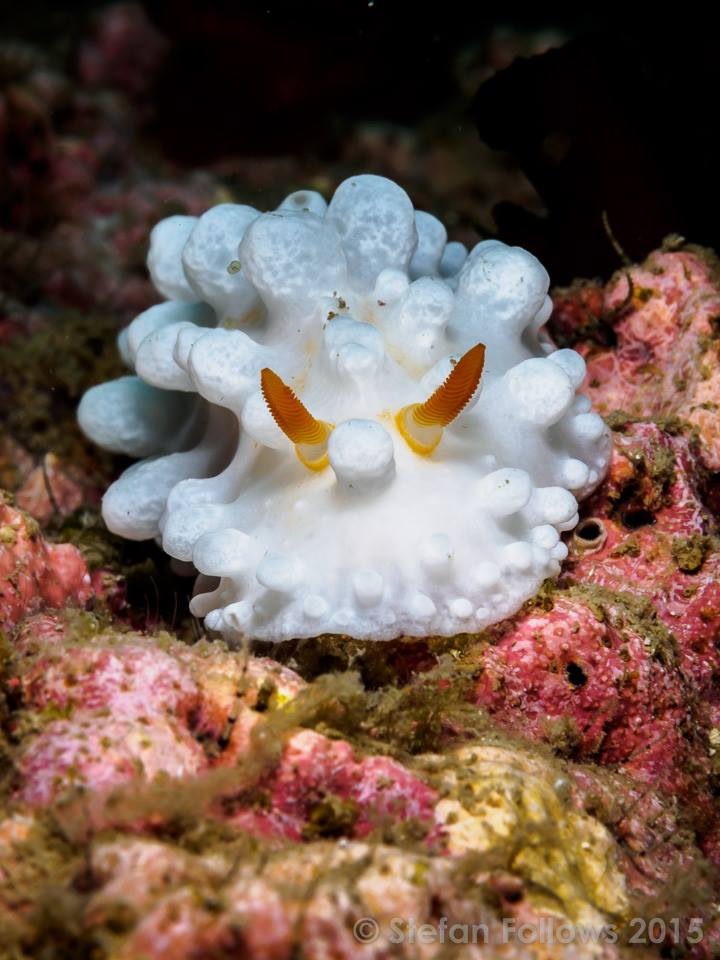
The main reason that Stefan works for Core Sea is because of his local understanding.
“We work closely with universities in Europe for example at the moment we have people from Holland and Germany with us for three to six months. They come here to do their Bachelors and Masters thesis. We get volunteers from every continent, most european countries but really everywhere. Also from Thailand itself which is very important, we even had a lady from China.
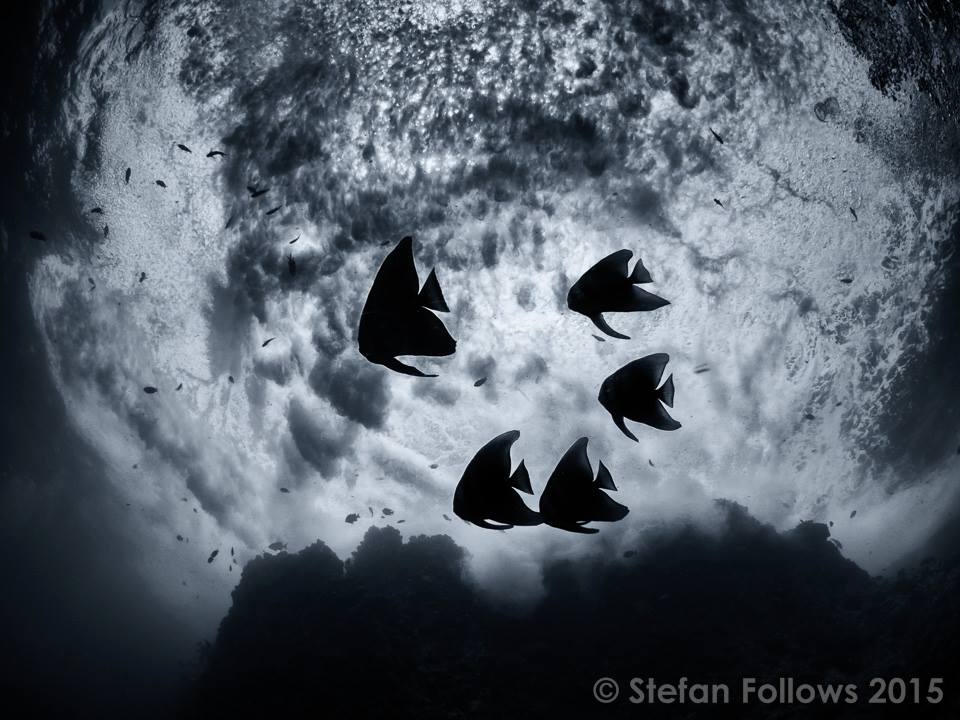
Tell us a bit more about Core Sea...
We work with the Thai government and have memorandum agreement with DCMR (Department for Marine and Coastal Resources). We do continuous monitoring of biodiversity measurements, life coral cover which is the percentage of reef still alive, we are currently monitoring artificial reef structures to see what’s happening, growing and living there.
We are the eyes and hands of the DCMR on Koh Phangan.
Our statement is to understand and protect the marine biodiversity of Thailand.
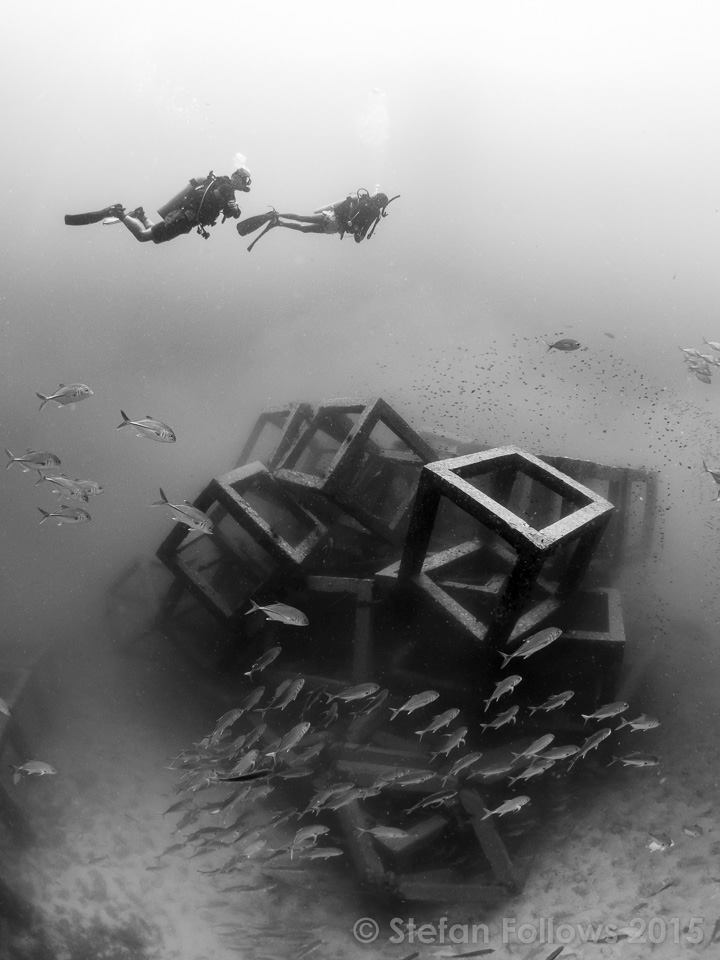
Talk us through a day in your job…
So the day starts with a dive briefing, the dive sites we’re going to, where the researchers, volunteers and interns are going. Also what roles they have on the dive, the tasks and jobs to do. Then getting everybody organised, making sure we have all the right equipment for the mission. We generally go out on longtail boats, with the local captains which keeps us connected to locals, then we head out.
We concentrate on the North East of the island, Chaloklum to Haad Yao is as far south west that we go. Not to say we don’t dive the rest but that’s our main area of study. We do two dives in the day and what kinds of dives we do depends on what projects we have, it can be coral bleaching surveys, fish abundance, biodiversity, water sampling, sediment sampling. coral algae interactions and more.
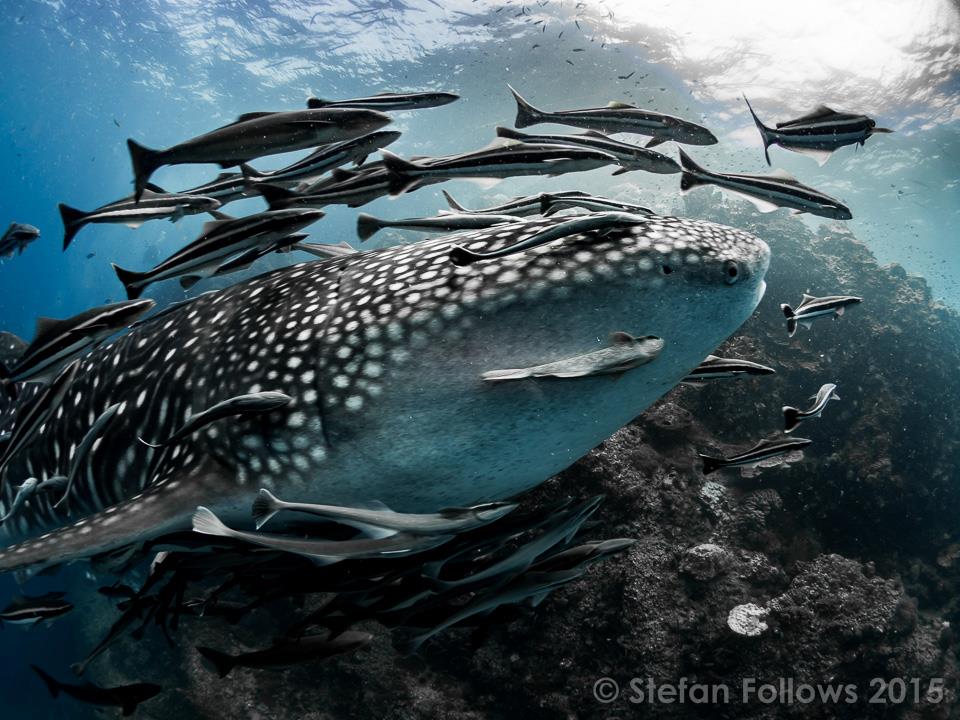
You’ve been here a while, what have you seen change?
A dramatic decline in the marine life on the island.
What do you think people can do to help?
Say no to plastic bags, reuse your bottled water as well, it is only twenty baht for twenty litres which is worth doing even if you are here on a two week holiday. But it is the people living here who need to set the examples, and to tell other people. We have to reduce as much as possible, recycling is the last resort. Not just for this island but for this life! We need to take this seriously. People need to address themselves but it is hard work and not easy. If we don’t do that then we are contributing to the demise.
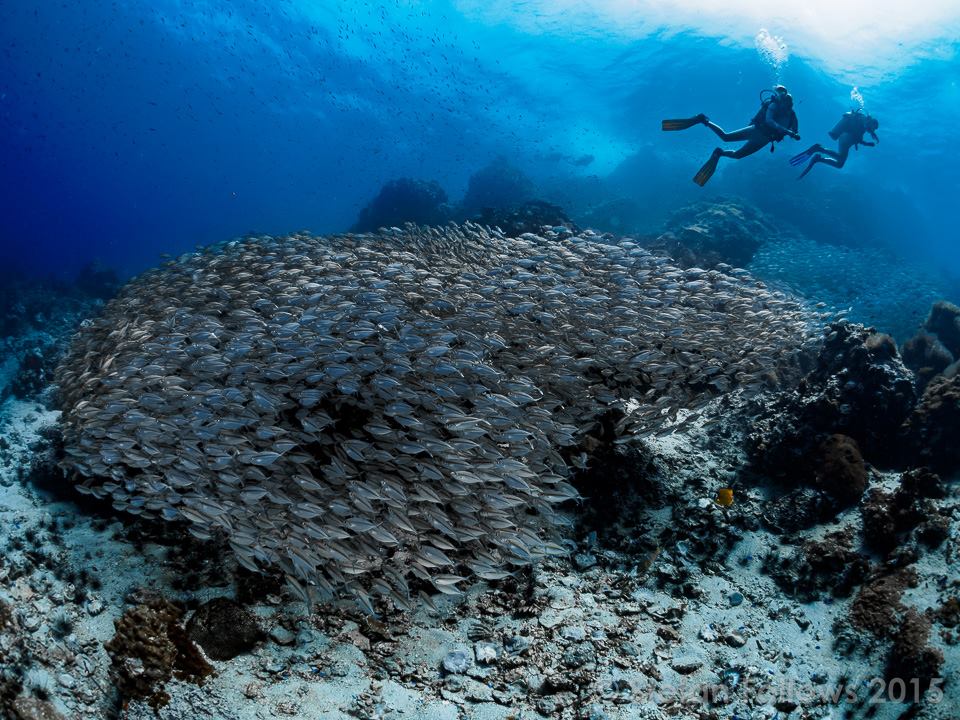
How did you get into underwater photography?
I started because I wanted to find a way and a means to identify this beautiful and amazing stuff. To find out what these things were. It only occurred to me after a year when people said that these were beautiful pictures, that I thought ‘why don’t I make them more meaningful’. I still consider myself very lucky and privileged to see these things on a daily basis.
What inspires you?
The same thing which makes me do my job, to try and share my passion, enthusiasm and obsession for all things aquatic. Going back to the environmental thing, if we can’t save the ocean we can’t save ourselves.
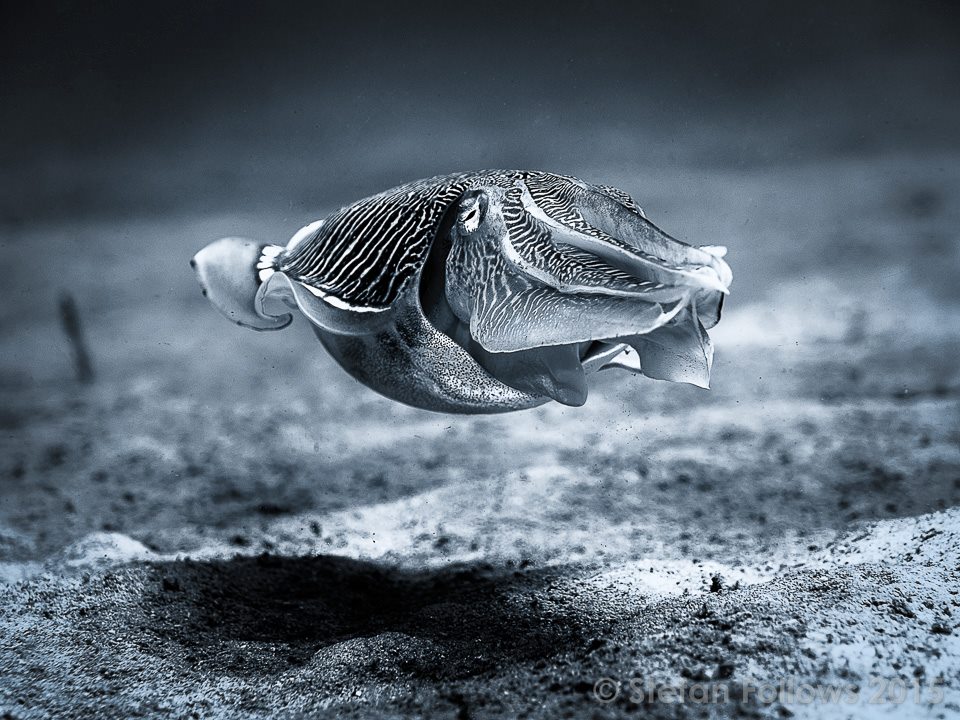
What is the best thing you’ve photographed?
That’s an impossible question to answer as there is so much variety. Underwater photographers are usually divided up into macro and wide angle. Macro is phenomenal because even experienced divers swim past the things I photograph in macro all the time as they are so tiny. It’s done using a powerful magnifying lense and you can photograph something half the size of a grain of rice. These things are stunningly beautiful and often lead cryptic lifestyles along with other creatures in the ocean.
The wide angle allows you to show the topography, the landscape and the enormity of everything. Then you also get the mega stuff like the Whale Sharks and schools of fish. Also the people within these things which gives us a direct contact, my most successful have been photo’s with a diver in them as we as humans need to connect.
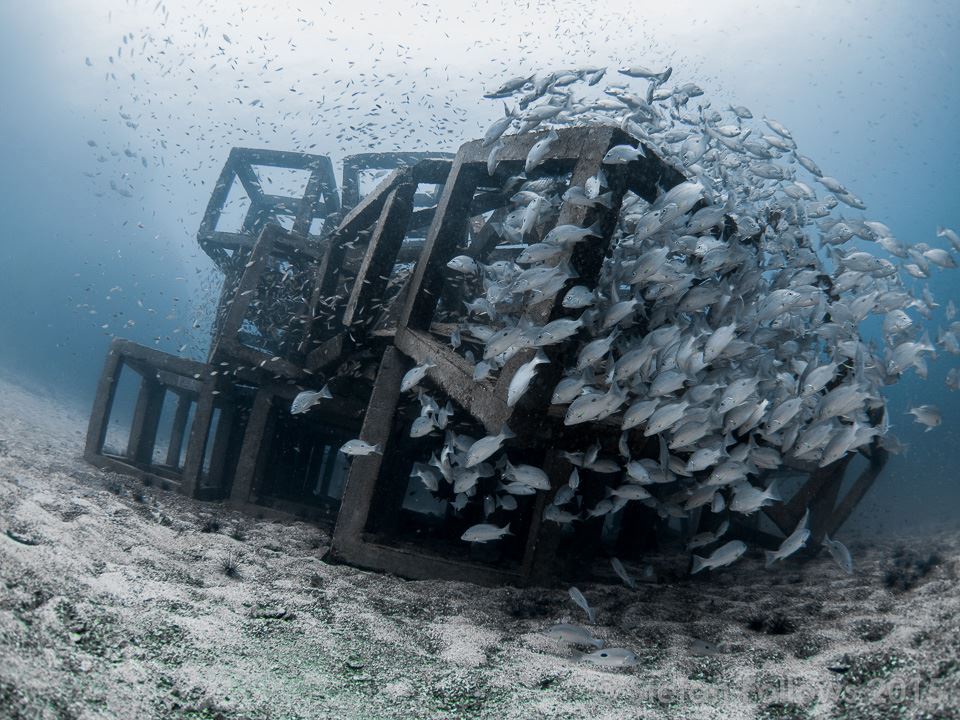
You have entered competitions, how have they gone?
In terms of underwater related, last year was the first year I started entering, I came first in Down Under Pics. I came runner up in two categories in underwaterphotography.com which is one of the worlds largest with some of the biggest names. Both images were taken at Sail Rock so it shows that it really is a first class site. This was huge for me as I don’t really like competitions but it helps me to measure that my work by standard is comparable to people I admire the most.
I also came third in Adex China in the created and manipulated category, this is also a major worldwide dive show, to get a place in that, against some of the most well known photographers is a pretty big deal. In the last two years I have had pretty good success, the last five competitions I have entered I have been placed in four of them.
How can people buy your photography?
I sell some through 500pix.com and also people contact me directly. They may want to have a photo of themselves so it is a bit like portraiture photography. Also through the facebook page and I made some e-books which I have sold through blurb.com.
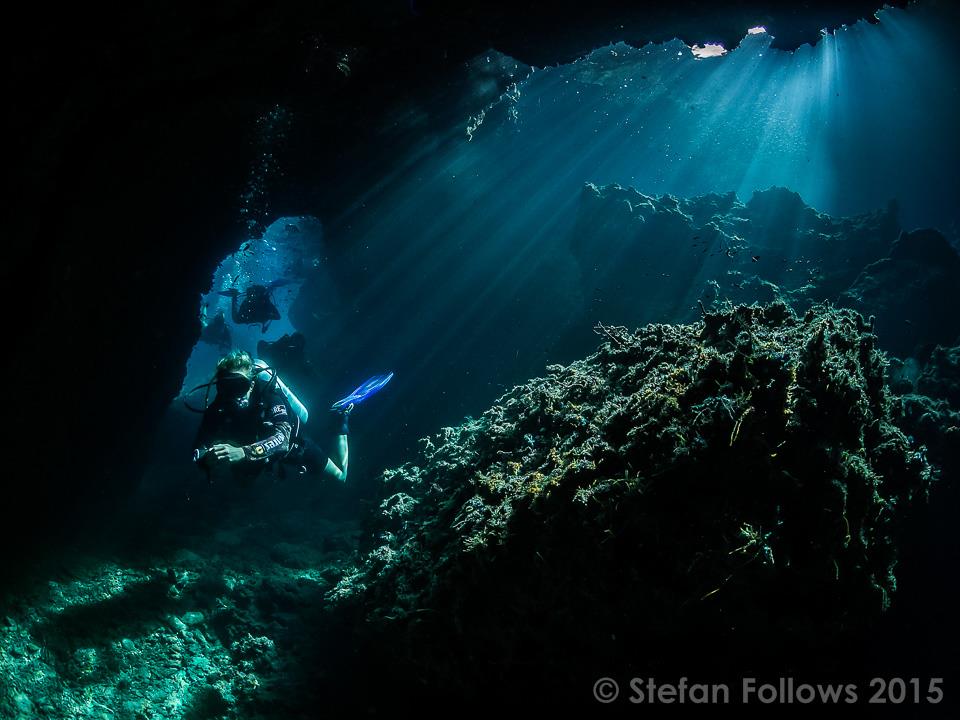
What do you do in your free time?
We are huge fans of food! One of the original reasons me and my wife decided we would live in Thailand is because we love Thai food and still have an absolute passion for it. At the moment our favourite for Thai is Indy kitchen in Chaloklum, she can do take away but she is really small so if you have a big order it is best to tell her what you want before, but don’t forget your reusable tupperware tubs so we are not using plastic! We also love western food so will go to Santorini, Peppercorn and Rimini in Chaloklum. I’m diving everyday for a job and Lotta is in the kitchen so that’s why we eat out a lot. I also like going on the motorbike, finding roads we have never found before, there are always places we’ve never been. I also hang out at beach bars, relax and enjoy a sunset.
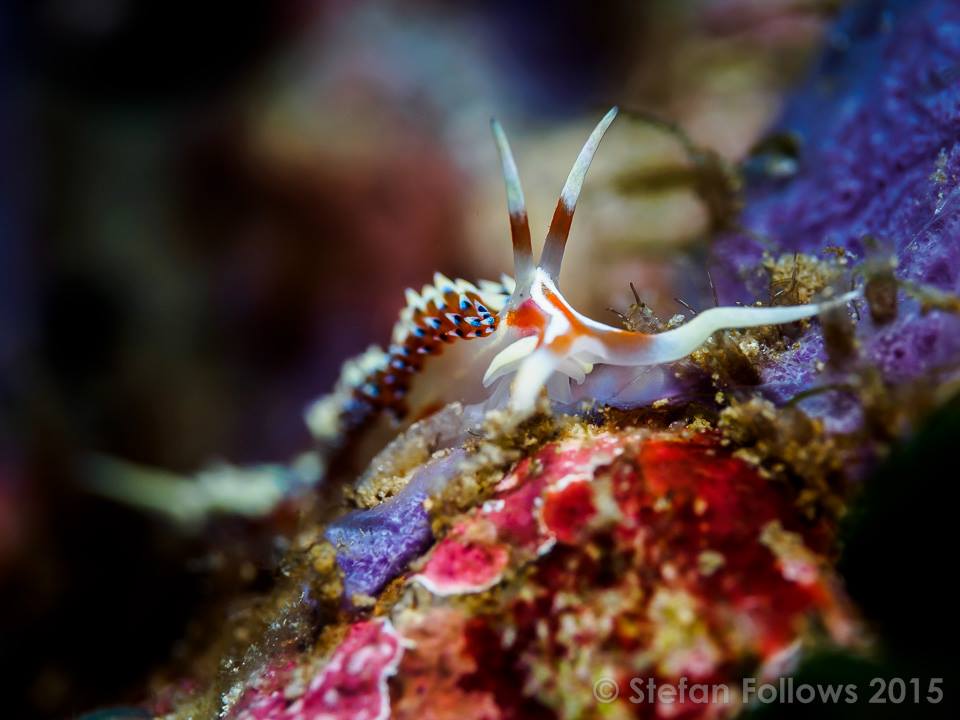
What is your life philosophy?
Live and let dive.
































